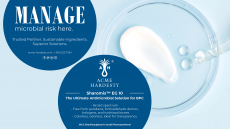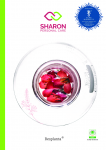Ceapro signs agreement for avenanthramide process technology with government

According to Ceapro, the sole commercial manufacturer of avenanthramides worldwide, these compounds are found only in oats and in very small quantities, which has limited the markets that could be served so far (mainly cosmetics and personal care) using its proprietary extraction process.
The company thus expects the new avenanthramide process technology, developed by scientists at Agriculture and Agri-Food Canada, to also open up applications in the functional food, nutraceutical and pharmaceutical domains.
"It will be a game changer for Ceapro, putting us in a position to produce the much larger volumes needed to supply new markets and attract the right partners," said David Fielder, chief scientific officer at Ceapro.
Novel malting process
Fielder told CosmeticsDesign.com USA that "the innovative patent-pending process to increase avenanthramides in post-harvest grain has been coined ‘a false-malting process’".
“The process essentially puts the oats into a dormant phase stopping germination of the grain, but allows the ability for the seed to produce avenanthramides to be stimulated. Using this technology, a low yielding avenanthramide can be ‘converted’ to a high yielding material,” he explained, also underlining that “it is important to note that the choice of variety is critical to the commercial success of this process.”
According to Fielder, this process will enable Ceapro to produce even higher purity and more concentrated ingredients for both skin and hair care applications.
Anti-inflammatory and anti-histamntic properties
He said that Ceapro has shown, through various in vitro and in vivo studies, that avenanthramides “can suppress a wide range of pro-inflammatory cytokines in very low concentrations (ppb) and have significant anti-histaminic properties”.
Avenanthramides can be used in a variety of cosmetics and personal care products according to Fielder, including anti-aging and cellular protection, shampoos and conditioners and shaving and lip care products. They can also be used in pre- and post-sun care products to reduce the effects of sun exposure, he said.












